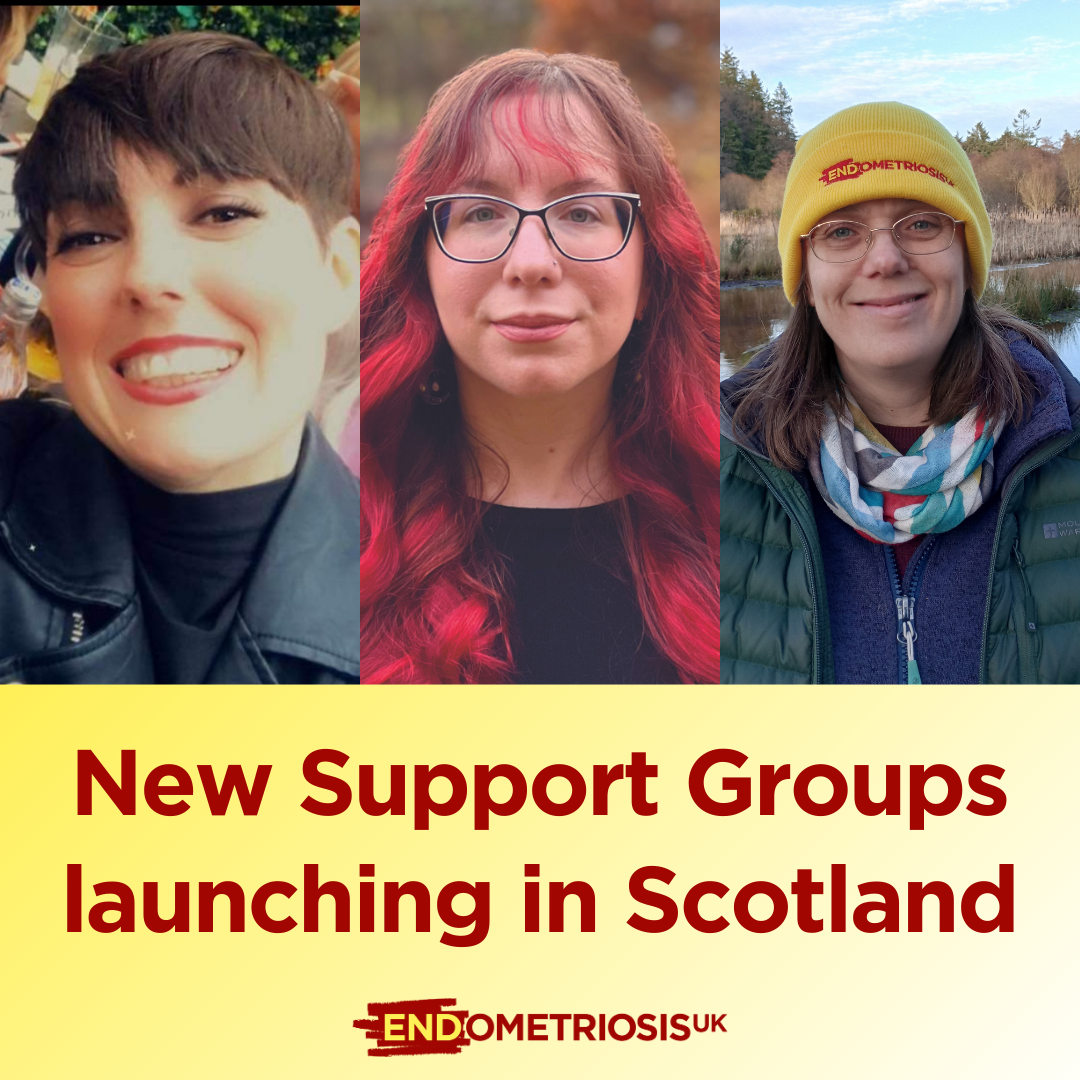Three new volunteer-led support groups have been created in Scotland, to support the estimated hundreds of thousands in the country with suspected or diagnosed endometriosis.
They launch during Endometriosis Action Month (March 2024), after new research from the charity Endometriosis UK revealed that it now takes an average of nearly nine years to get diagnosed with the disease in Scotland.
The four new groups – the Endometriosis UK Edinburgh West Group, Endometriosis UK Moray Group, Endometriosis UK Inverness Group and Endometriosis UK Western Isles Group – offer peer-to-peer support and a chance to share stories, information and advice, both online and at in-person meet-ups and events.
Anyone interested can join the groups on Facebook (links above), or sign up to the group mailing lists, as detailed on our support groups page.
Pat Menzies, Scottish Development Co-ordinator at Endometriosis UK, says: “The theme of Endometriosis Action Month this year is ‘could it be endometriosis?’ - we’re encouraging healthcare professionals, as well as those experiencing symptoms, and their friends, family and colleagues, to find out more about the disease.
“Currently, it takes an average of eight years and 10 months in Scotland to get diagnosed with endometriosis, which is an increase of 4 months since the last survey in 2020. Our amazing volunteers across Scotland, including Jo, Eleanor, Milly, Kirsty and Hannah, provide a unique support system for those going through the diagnosis process, and indeed at any stage of their endometriosis journey. We’re really grateful to them for their hard work, and delighted to launch these new groups.”
Johanne Ormiston (39), who has set up the Endometriosis UK Edinburgh West Group and hosts its first in-person event today (Tuesday 26 March), says: “From my first periods aged 12, I experienced symptoms of endometriosis – I always knew that’s what it was, because my mum also lives with the disease and has been really open. But nobody else took me seriously, sometimes they fobbed me off, making me feel that the pain was all in my head. It took until 2023, when my symptoms got really bad, that I got diagnosed.
“Finally, I was believed, and the nurses and gynaecologists who have taken care of me have been amazing, but it really shouldn’t have taken a quarter of a century to get to that point. I’m excited to set up this new group to help others feel supported and believed.”
Because of health issues, Jo had to give up her previous career as a hairdresser, but has recently followed one of her passions and works as a medium, tea leaves and tarot card reader.
Eleanor Symon (48) from Forres, who works as a trainer in the charity sector, and is leading the new Endometriosis UK Moray Group, says: “I was diagnosed in my late 20s, having experienced symptoms including chronic pain and fatigue – at times I couldn’t walk faster than a snail’s pace because of the pain, and the pain could last as much as two weeks out of a four-week menstrual cycle.
“I have two children who are now teenagers, but after those pregnancies my symptoms got worse, despite the myth that pregnancy can make things better. My symptoms are mostly under control now, I’m happy to say, and I’m pleased to have this chance to work with Endometriosis UK to support those who have gone through similar experiences to me.”
The Inverness group will be led by Kristy Strange, who is originally from Canada but has lived in Scotland for eight years, including when she was diagnosed in 2019. The Western Isles group is run by Milly Shanks and Hannah MacLeod. As a Gaelic speaker, Hannah will ensure the Gaelic-speaking community can for the first access Endometriosis UK’s support in their preferred language.
Our diagnosis report, published earlier in March revealed that Scotland has an average wait for a diagnosis of endometriosis of eight years and 10 months. The study also found that 78% of participants had been told they were ‘making a fuss about nothing’ or similar comments doubting the severity of their symptoms – an increase from 69% in the 2020.
These new support groups follow the launch earlier in the month of three new groups in Wales.
Endometriosis UK’s support groups welcome anyone impacted by the disease, including the friends and loved ones who support someone with endometriosis and those who do not yet have a formal diagnosis. Find out more about other support groups and channels from Endometriosis UK here.


